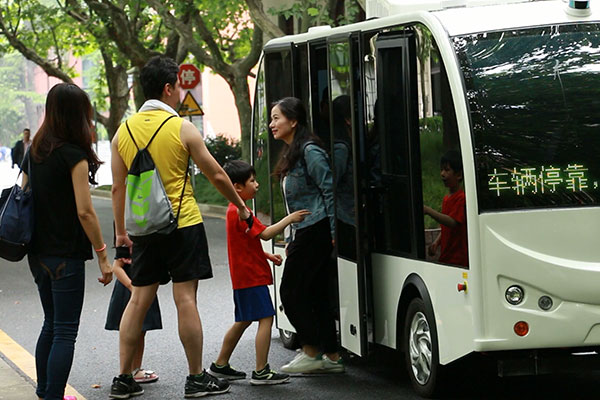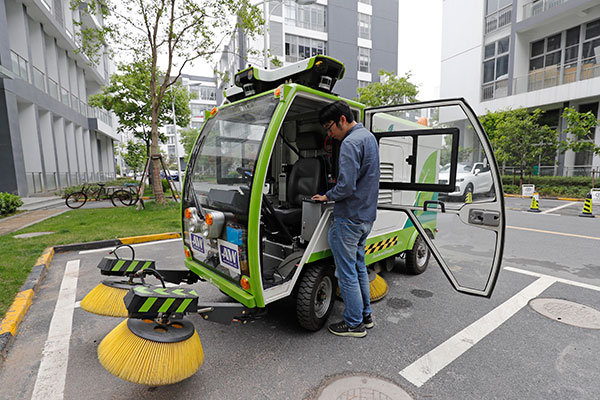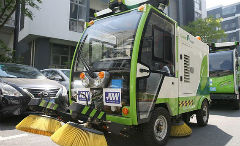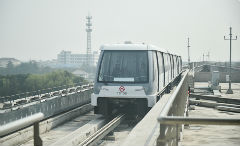Driverless vehicles edge closer to reality
2018-06-18
China Daily
 Passengers get on a driverless minibus at Shanghai Jiao Tong University in May.[Photo provided to China Daily]
Passengers get on a driverless minibus at Shanghai Jiao Tong University in May.[Photo provided to China Daily]
More driverless vehicles are entering people’s daily lives in the Chinese transportation sector.
A recent report on public recognition and social attitudes toward AI technology released by Fudan University in May reveals that driverless cars are the best-known example of artificial intelligence’s huge impact on life today in the country.
Specifically, many cases in the global transport hub of Shanghai demonstrate this point.
In March, a new metro line with driverless trains, equipped with intercoms, emergency alerts, smoke detectors and emergency brakes, was tested in the city. The Automated People Mover system on the Pujiang Line, which stretches for 6.7 kilometers and links Huizhen Road with Shendu Highway Station, will allow passengers to transfer to metro line 8.
At Shanghai Jiao Tong University, a trial run of a driverless minibus service has been in operation since April for on-campus commuting. Three eight-seat vehicles, guided by a map stored in a big data-based cloud platform, can pick up passengers and take them to the stop they select by scanning a QR code.
 An engineer adjusts the software settings of a driverless sweeper truck at the Tus-Caohejing Science Park in Shanghai in April.[Photo/China News Service]
An engineer adjusts the software settings of a driverless sweeper truck at the Tus-Caohejing Science Park in Shanghai in April.[Photo/China News Service]
The driverless cars were developed jointly by the university’s Research Institute of Intelligence Vehicles and a company specializing in the research and production of automatic driving systems.
In the same month, driverless sweeper trucks designed by a Shanghai-based company started tests at the Tus-Caohejing Science Park in the city.
The fleet of unmanned vehicles, comprising 3-and 6-meter-long vehicles, can self-activate every night at 2 am and clean the streets before dumping the trash and returning to their parking spots.
The smart trucks can deal with a variety of traffic conditions, including detecting traffic lights and road side barriers.
Driverless vehicles are also entering the field of manufacturing, represented by a newly-developed heavy-duty driverless truck put on a trial run in the city’s logistics park in May, developed by Chinese consumer electronics retailer, Suning.
The prospect of streets filled with driverless cars moved one step closer to becoming a reality after a Shanghai unicorn company announced in late May that they plan to roll out two artificial intelligence towns featuring driverless vehicles in the city and in Jiangsu province within three months, making them the first of their kind in China.
The rising use of AI technology in transportation has received a warm welcome from the general Chinese population.
A global automotive consumer study released by Deloitte in June found that the China has the lowest percentage of consumers who think fully autonomous vehicles present a danger to road users out of any country in the Asia-Pacific region. This level of doubt is expected to decrease.




